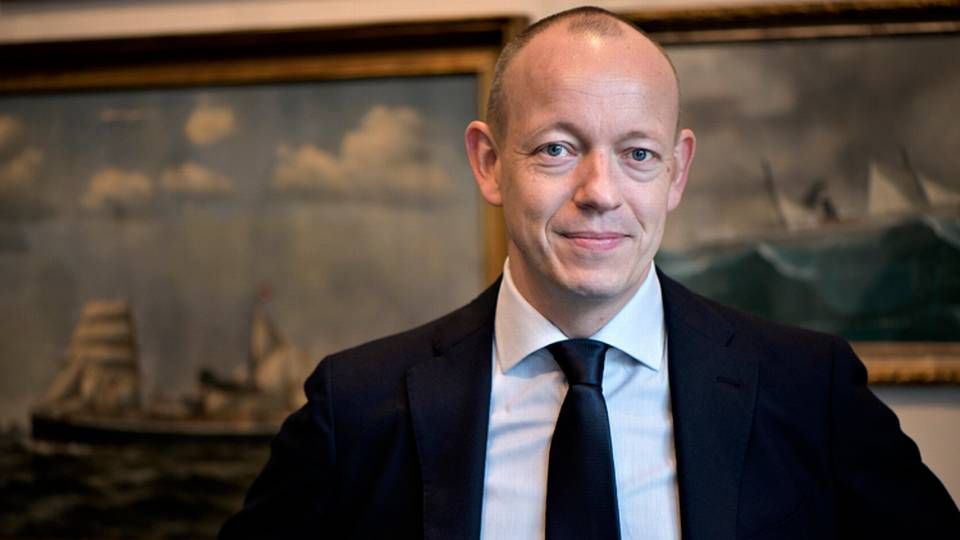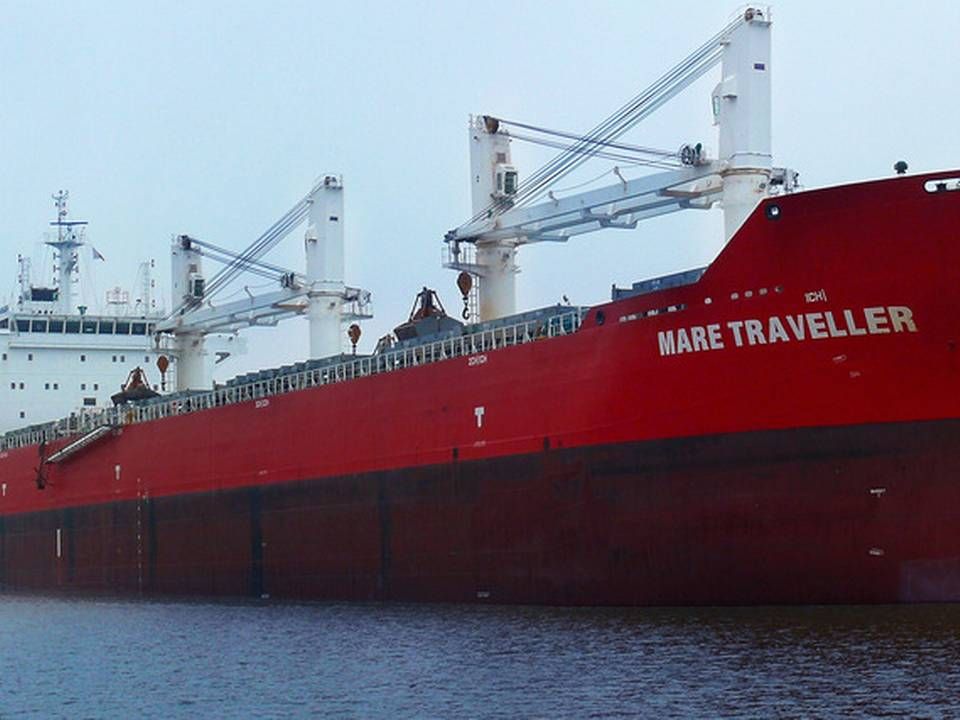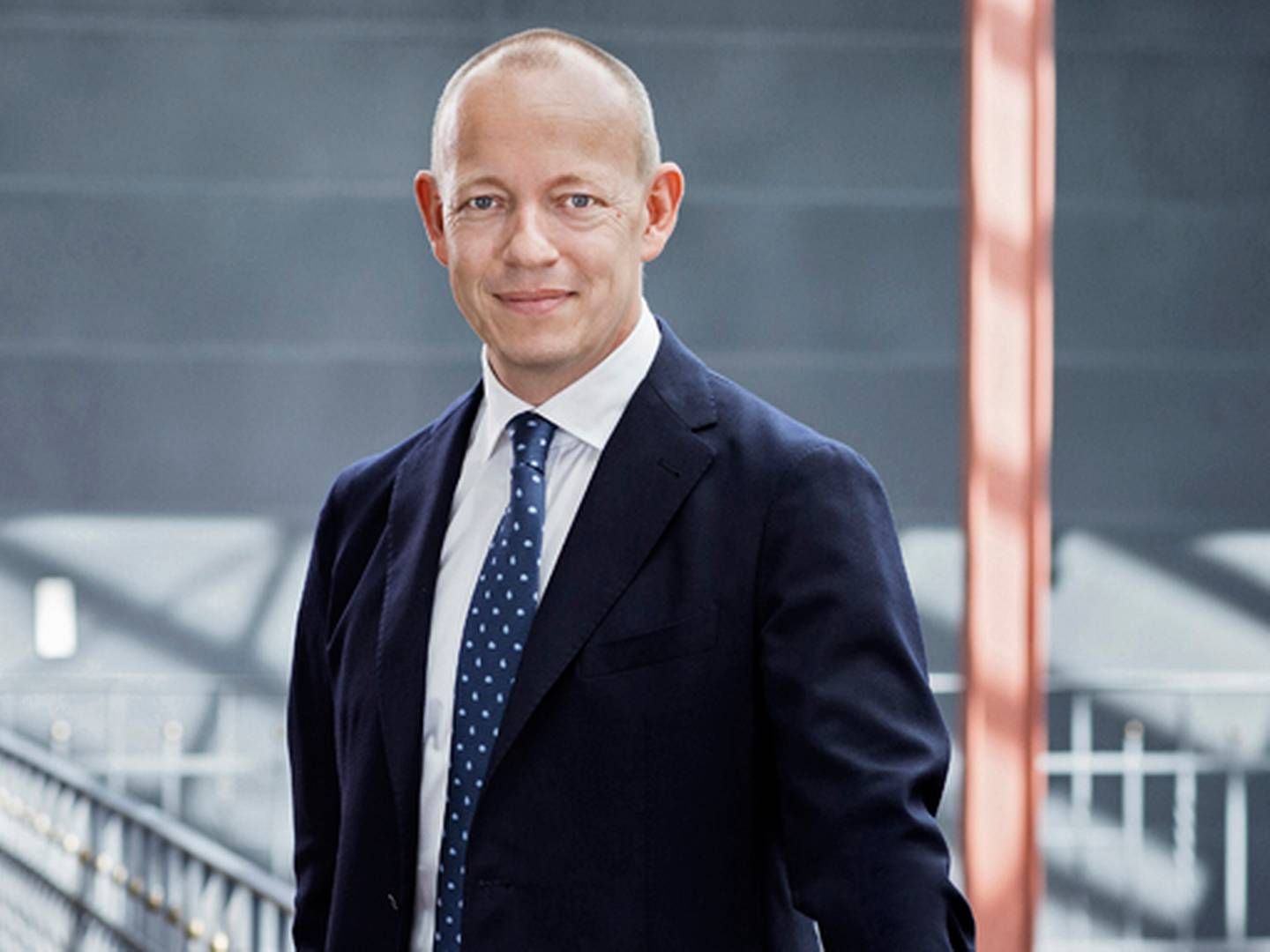Norden CEO: This result marks a significant shift for Norden

Carrier Norden could be headed out of a multiple-year losing streak with Thursday's third quarter results, which showed a bottom line profit.
"But within that range, I hope we can emerge with a positive figure. This marks a significant shift for Norden. We haven't made money since 2011, so for me and the rest of the organization it would be amazing to present a positive bottom line. Overall for the third quarter, things are headed in the right direction," he says from the fifth-story office in northern Copenhagen.
The third quarter profit of USD 4 million arrives at a time in which dry bulk shipowners around the world have been yearning for the crisis to end after markets came crashing down to an all-time low in February 2016. Several carriers have booked positive figures this year, but the question is how the full-year 2017 will end.
Rindbo speaks of a synchronized global recovery where China has forged ahead and driven high rates for dry bulk over the year along with positive iron ore and coal imports as well as bauxite and grain. He doubts whether the growth can maintain this speed into 2018. But it does not concern him that much. One thing makes a major difference, he explains.
"The crucial part is really that we overcome this huge hump of excess capacity. We've had many years where new ships kept being delivered and this will decline significantly from 2018 and going forward. In 2018, we'll see something that looks like fleet growth of one percent and this is the lowest level since 1999," he says adding:
"So this is a new situation on the supply side for dry bulk and creates good conditions for the market to hopefully continue rising. We've had unusually good fortune in demand in 2017, so you might expect that the pace declines a little next year. But we can allow that with just 1 percent of fleet growth."
Decisive split
In his corner office, Rindbo has not changed anything from the era of his predecessor Carsten Mortensen. The same gold-framed paintings of vessels adorn the walls and the same black leather furniture dresses the room. But while Rindbo held onto the furniture, he made a major change to the carrier's dry bulk setup, which he has high hopes for.
Since Rindbo took over as CEO of Norden, he has worked with what he calls unfulfilled potential. He plans to fulfill the potential by splitting up dry bulk.
"We operate in ever-changing markets, so it requires a different level of agility in our business. We need to have a more dynamic approach to these markets. As a shipowner, you have chartered in ships of 5-10 years or you own them and typically struggle a little more to position yourself. As an operator, it's a day-to-day or hour-to-hour assessment of where the market is headed. This is a big opportunity for Norden," explains Rindbo.
In dry bulk, Norden made USD 5 million in the third quarter but lost USD 2 million in the Dry Operator division. Isolated this is not a great result, as Rindbo says. But the CEO explains that the loss is attributable to the carrier positioning the bulk fleet with lower paid journeys in the quarter in order to be in the perfect position in the fourth quarter.
"This is the investment that we'll see returns from in the fourth quarter, where there are seasonal tailwinds. We can already see that we'll get good value this way. So we've positioned our vessels in the third quarter to slightly lower paid journeys to get the ships into the right areas in the Atlantic, and this will impact the fourth quarter. This is one of the reasons we made the upgrade."
Looking to conquer market shares
While the dry bulk division was profitable, Norden's tankers landed a deficit of USD 1 million. And Rindbo is pleased with this item when looking at today's tanker market, where oil deposits at capacity and too many ships pose a challenge. Meanwhile, tankers are exceeding the market.
"We've benefited from the coverage that we took in better markets and this shielded our earnings. We didn't benefit so much from the recovery in the global economy, which also favors the oil demand, because it was taken from storages instead of sailing it," he says.
The deposits are now normalizing and, according to Rindbo, this means good conditions for an increasing market in tanker which is currently under pressure from low rates.
Over coming months, Rindbo will settle the final structure and the teams in the new bulk units. Norden is currently one of the largest players in the dry bulk market and operates 250 ships. For this reason, it might seem absurd that the carrier has a market share of just 2-3 percent, acknowledges Rindbo.
"So there is huge potential for us in growing this part of the business with Dry Operator, and we can do it without taking major risk. If we were to charter 50 vessels on long contracts from other carriers, it would entail significant risk," he says referring to how Norden in Dry Operator is working to take ships on short-term contracts all the way down to 30 days and up to one year.
"I can't see why we shouldn't be able to double our fleet over the next three years. We have a good platform, competent employees, and the platform is scalable."
English Edit: Gretchen Deverell Pedersen & Daniel Logan Berg-Munch
Norden's bulk business profitable again
Related articles
Norden's bulk business profitable again
For subscribers
Dry bulk industry only halfway through the crisis
For subscribers
Jan Rindbo: Dry bulk rates must rise to ensure profit
For subscribers



















